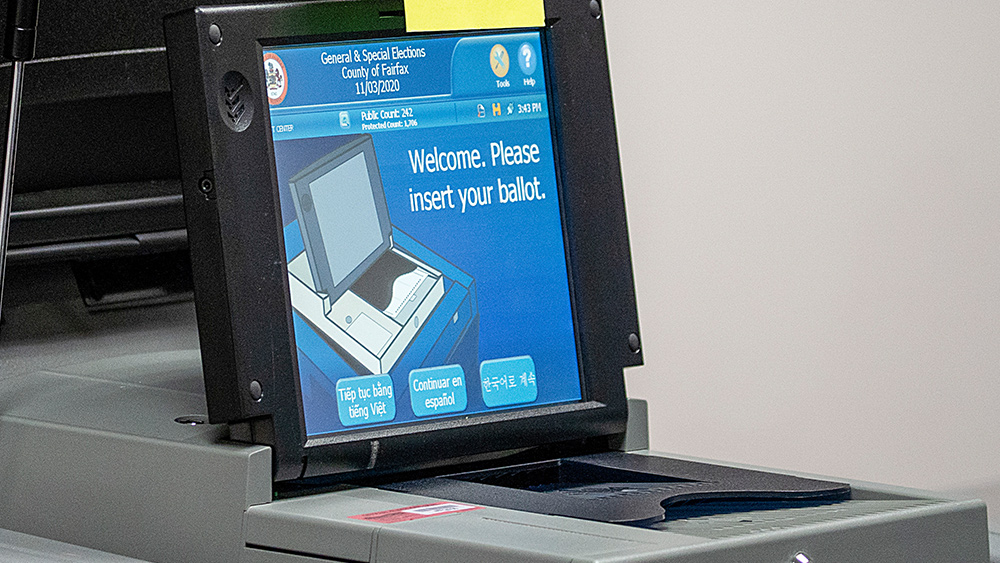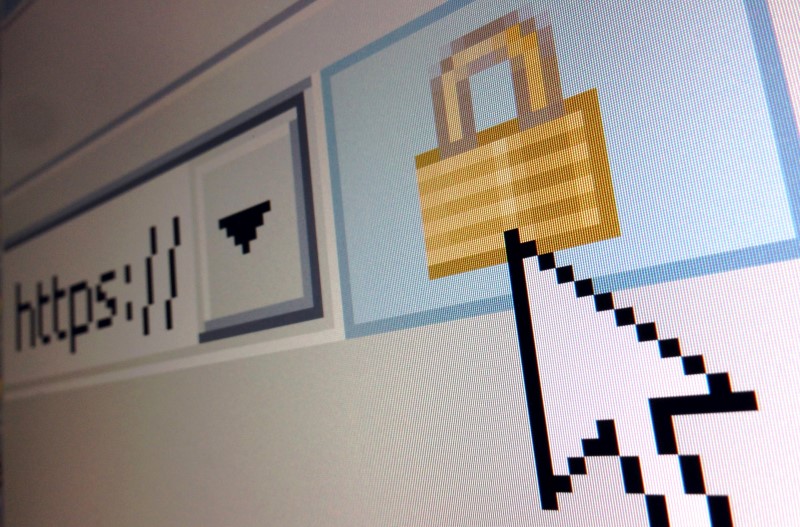Smart device that gives COVID test results in 20 minutes also sends data to CDC and other government agencies
05/25/2022 / By Arsenio Toledo

A Wuhan coronavirus (COVID-19) testing smart device sends data results immediately to the Centers for Disease Control and Prevention (CDC) and other federal and state health agencies.
The device in question is called Cue. According to its website, the smart device provides “reliable, easy-to-use COVID-19 tests with PCR-quality results delivered right to your mobile device in 20 minutes. No lab visits. No lines. No second guessing your results.”
But Cue’s website failed to mention the fact that the results of the tests are sent to the CDC and other relevant federal and state agencies.
“The Cue Health Mobile Application (Cue Health App) automatically reports test results according to the reporting guidelines of the appropriate public health authorities,” reads one of Cue’s fact sheets.
The smart device’s privacy policy further states that the users acknowledge that the company has the right to share personal health information with the CDC and other federal and state agencies “as required for public health surveillance and related purposes.” (Related: FLASHBACK: Pfizer CEO Albert Bourla fantasized at World Economic Forum in 2018 about feeding people Wi-Fi microchip drugs.)
The data that the Cue app sends to the CDC and other government agencies is vulnerable to alteration.
Ken Gannon, a security consultant, last month intercepted data sent by the Cue app before the test results could be sent to the mobile phone of a user. Gannon found that he could change the test result from negative to positive or vice versa.
Cue has allegedly fixed this issue since Gannon exposed the flaw. Even if this is true, it still highlights an important issue in fully digital health platforms.
Cue not attracting any customers due to hefty price tag
Despite a massive marketing campaign that included a Super Bowl commercial featuring “Wonder Woman” actress Gal Gadot and company executives bragging about the test’s 97.8 percent accuracy, Cue’s high-tech business model is still failing in part due to the massive price tag attached to buying these smart devices.
A reusable Cue device will cost customers $249. A pack of three non-reusable tests is $195. While prices of normal PCR COVID-19 tests vary, they are usually only around $100, with results taking up to 24 hours to be transmitted to customers. Costlier tests can provide quicker results.
Cue, on the other hand, is remarkably expensive. Even the company’s cheapest pricing, yearlong subscriptions of $480 for 10 tests and discounted Cue smart devices for $149, are still costlier than antigen tests which Americans can procure at little to no cost.
These prices don’t even include the ability to contact physicians via the app, which is another $900 for an annual subscription, to certify the validity of test results for travel or other purposes.
Cue’s price puts it out of reach of many potential consumers. This method of attracting revenue does not seem to be working, especially since health insurance companies, most of whom generally cover lab-based PCR tests and rapid antigen tests, do not reimburse policyholders for Cue tests.
More signs that Cue’s business model is failing can be seen in the stock market. Cue is a publicly traded company, and in its stock market debut last September share prices were $22. As of press time, a share costs $5.16, which represents a 74.2 percent drop in value.
Charles Rhyee, an analyst for the Wall Street investment firm Cowen, noted that it is possible Cue’s trajectory will follow the trend of other companies that experienced an early boom during the pandemic but are now failing as the world slowly returns to normal.
“The company is already looking like Peloton, and a lot of that feeling is already baked into the price of the stock,” he said.
Peloton, a company that sells exercise equipment, experienced an upswing in sales early in the pandemic as people purchased exercise equipment to stay fit at home. It has lost nearly 90 percent of its stock value since last year as gyms reopened.
Learn more about technology being used to track people at Surveillance.news.
Watch this episode of “The American Journal” on InfoWars as host Harrison Hill Smith talks about how the European Union’s COVID-19 passport mandate is paving the way for the creation of a global surveillance control grid.
This video is from the InfoWars channel on Brighteon.com.
More related stories:
Vaccine passports pave the way for digital identity system, warns Nick Corbishley.
Chipped “smart masks” that are traceable and trackable are the ultimate globalist control mechanism.
Sources include:
Submit a correction >>
Tagged Under:
big government, computing, conspiracy, covid-19, covid-19 testing, Cue, data privacy, deception, future tech, Glitch, information technology, inventions, medical tech, national security, pandemic, privacy watch, smart devices, surveillance, traitors
This article may contain statements that reflect the opinion of the author
RECENT NEWS & ARTICLES
COPYRIGHT © 2017 GLITCH.NEWS
All content posted on this site is protected under Free Speech. Glitch.news is not responsible for content written by contributing authors. The information on this site is provided for educational and entertainment purposes only. It is not intended as a substitute for professional advice of any kind. Glitch.news assumes no responsibility for the use or misuse of this material. All trademarks, registered trademarks and service marks mentioned on this site are the property of their respective owners.



















